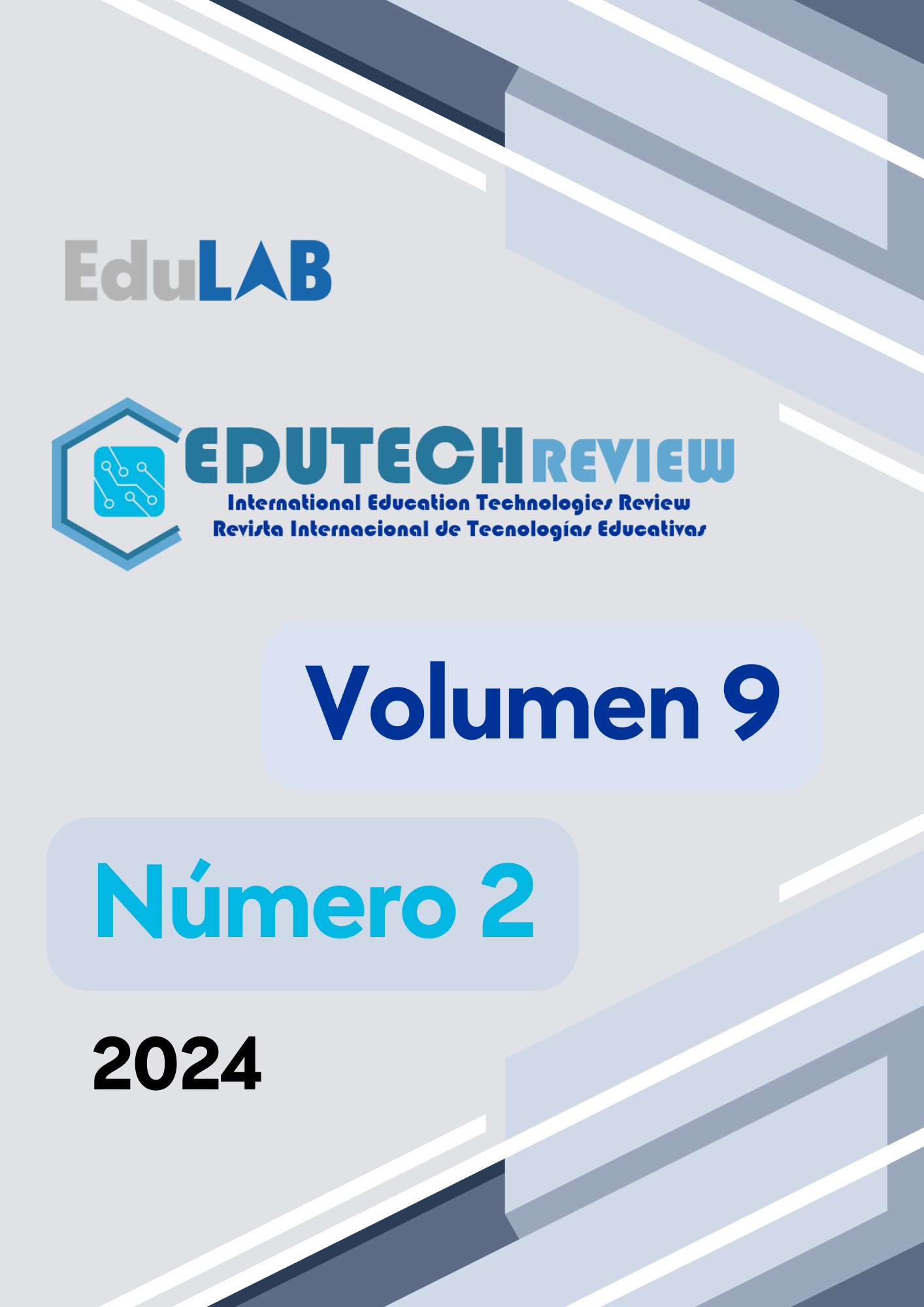Evaluation of professional skills. Challenges and opportunities in the work context
DOI:
https://doi.org/10.62701/revedutech.v9.5428Keywords:
Evaluation of professional competencies, digitalization of processes, training of evaluators, institutional supportAbstract
This research analyzes challenges, opportunities and strategies to optimize the evaluation of professional competencies in the work context. The qualitative methodology of the interpretive paradigm with phenomenological design and grounded theory was used to explore experiences and perceptions of the evaluators. The sample was professional competency evaluators intentionally selected, ensuring the relevance of their experiences in evaluation processes. Through coding, barriers were identified such as lack of standardization in processes, excessive administrative burden and initial resistance from applicants; Opportunities related to the digitalization and implementation of technologies to improve the quality of evaluations were also recognized. The proposed strategies include raising awareness among applicants, continuous training of evaluators, digitization of documents, and introduction of incentives that promote commitments. The findings highlight the importance of combining technological innovation, institutional support and user-centered approaches to ensure sustainability and positive impact of evaluation processes.
Global Statistics ℹ️
|
691
Views
|
602
Downloads
|
|
1293
Total
|
|
References
Anderson, N., Salgado, J. F., & Hülsheger, U. R. (2010). Applicant reactions in selection: Comprehensive meta-analysis into reaction generalization versus situational specificity. International Journal of Selection and Assessment, 18(3), 291-304. https://doi.org/10.1111/j.1468-2389.2010.00512.x DOI: https://doi.org/10.1111/j.1468-2389.2010.00512.x
Creswell, J. W. (2014). Research design: Qualitative, quantitative, and mixed methods approaches. SAGE Publications.
Charmaz, K. (2014). Constructing grounded theory. SAGE Publications.
Chiavenato, I. (2017). Gestión del talento humano: Un enfoque centrado en las personas. McGraw-Hill.
Delamare, F., & Winterton, J. (2005). What is competence? International Labour Organization.
Díaz-Barriga, Á. (Coordinador). (2020). La evaluación del desempeño docente. Propuestas y contradicciones. IISUE. http://www.iisue.unam.mx/publicaciones/libros/la-evaluacion-del-desempeno-docente-propuestas-y-contradicciones
Eraut, M. (2004). Informal learning in the workplace. Studies in Continuing Education, 26(2), 247-273. https://doi.org/10.1080/158037042000225245 DOI: https://doi.org/10.1080/158037042000225245
Fernández, T., & Bardales, O. (2024). La experiencia de la investigación cualitativa. Universidad Peruana Cayetano Heredia-UPCH.
Fuentes Hernández, E. J., Reyes Gallegos, M. M., Reyes Gallegos, M. M., López García, R. D., Coronado Reyes, H., Núñez Guzmán, J. R., & Garduño Miranda, D. I. (2024). Autoevaluación de Competencias Laborales al Personal de Producción en una Empresa Manufacturera. Ciencia Latina Revista Científica Multidisciplinar, 8(1), 11183-11194. https://doi.org/10.37811/cl_rcm.v8i1.10424 DOI: https://doi.org/10.37811/cl_rcm.v8i1.10424
García-Peñalvo, F. J. (2024). Cómo afecta la inteligencia artificial generativa a los procesos de evaluación. Cuadernos de Pedagogía, (549). https://repositorio.grial.eu/server/api/core/bitstreams/48755dd2-922c-427f-a8f0-541a6c56430b/content
Incio Flores, F. A., Capuñay Sánchez, D. L., Estela Urbina, R. O., Valles Coral, M. Á., Vergara Medrano, S. E., & Elera Gonzales, D. G. (2022). Inteligencia artificial en educación: una revisión de la literatura en revistas científicas internacionales. Apuntes universitarios, 12(1), 353-372. https://doi.org/10.17162/au.v12i1.974 DOI: https://doi.org/10.17162/au.v12i1.974
González-González, C. S. (2023). El impacto de la inteligencia artificial en la educación: transformación de la forma de enseñar y de aprender. Revista Qurriculum, 36, 51-60. https://doi.org/10.25145/j.qurricul.2023.36.03 DOI: https://doi.org/10.25145/j.qurricul.2023.36.03
Kvale, S. (2007). Doing interviews. SAGE Publications. DOI: https://doi.org/10.4135/9781849208963
OECD. (2019). SMEs in the digital era: Assessment and challenges. OECD Publishing.
Patton, M. Q. (2002). Qualitative research and evaluation methods. SAGE Publications.
Renz, A., & Hilbig, R. (2020). Prerequisites for artificial intelligence in further education: Identification of drivers, barriers, and business models of educational technology companies. International Journal of Educational Technology in Higher Education, 17(1). https://doi.org/10.1186/s41239-020-00193-3 DOI: https://doi.org/10.1186/s41239-020-00193-3
Strauss, A., & Corbin, J. (1998). Basics of qualitative research: Techniques and procedures for developing grounded theory. SAGE Publications.
Torres-López, S., Cuesta-Santos, A., Piñero-Pérez, P. Y., & Lugo-García, J. A. (2018). Evaluación de competencias laborales a partir de evidencias. Ingeniería Industrial, 39(2), 124-134. http://scielo.sld.cu/scielo.php?pid=S1815-59362018000200124&script=sci_arttext&tlng=pt
World Economic Forum. (2020). The Future of Jobs Report. World Economic Forum.
Downloads
Published
How to Cite
Issue
Section
License
Copyright (c) 2024 EDUTECH REVIEW. International Education Technologies Review / Revista Internacional de Tecnologías Educativas

This work is licensed under a Creative Commons Attribution-NonCommercial-NoDerivatives 4.0 International License.
Those authors who publish in this journal accept the following terms:
- Authors will keep the moral right of the work and they will transfer the commercial rights.
- After 1 year from publication, the work shall thereafter be open access online on our website, but will retain copyright.
- In the event that the authors wish to assign an Creative Commons (CC) license, they may request it by writing to publishing@eagora.org







